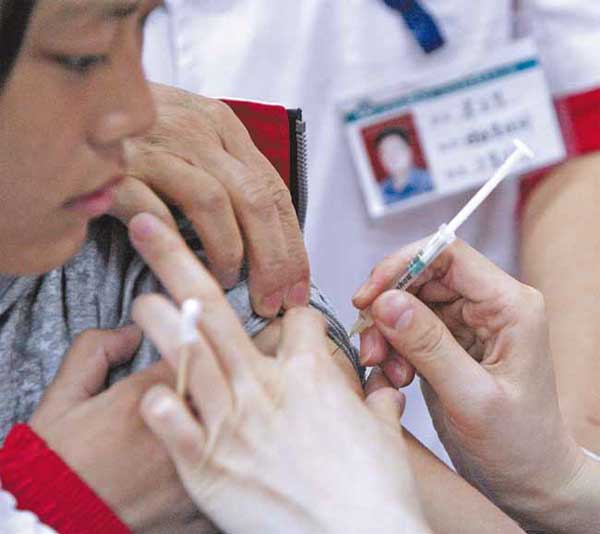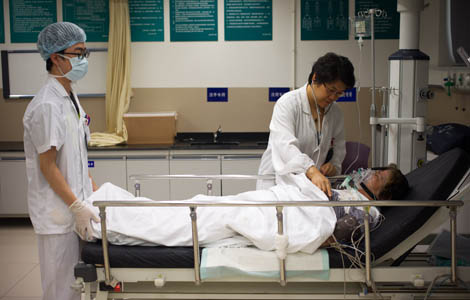Lurking threat
Updated: 2013-07-23 23:09
(China Daily)
|
||||||||
It can take years for a hepatitis B infection to turn into cirrhosis of the liver and even cancer, and the lack of early symptoms means people are far too complacent, experts tell Liu Zhihua.
In September 2011, Liu Junjie had just enrolled in Hefei University of Technology for a master's degree in computer science.
 |
|
Vaccinations and regular health checks are effective ways to prevent hepatitis B infection.Photos provided to China Daily |
A few days later, the happy and confident 23-year-old was sent to a hospital because of sudden and fierce abdominal pain, and was diagnosed of end-stage liver cancer.
Doctors said his liver cancer developed from a hepatitis B infection.
Liu's infection was detected in 2006, but due to his family's financial restraints and ignorance of the disease, he seldom took anti-virus medication and did not have regular checkups before 2011.
Liu died early this year, and his case is far from unique.
Hepatitis B, an infectious inflammatory illness of the liver caused by the HB virus, is endemic in China.
According to the National Health and Family Planning Commission, the country has about 93 million people infected with the virus, and about 70 percent of them are chronic carriers.
The incidence rate of HB infection in China has dropped dramatically in recent decades, thanks to the national program of HB vaccination among children and adults.
But as World Hepatitis Day approaches on July 28, experts warn that HB patients are still not well-informed about the disease, and many overlook its serious threat.
"The greatest health risk of HB is to cause long-term liver diseases, including cirrhosis, or scarring of the liver, and liver cancer," says Xiu Dianrong, a liver-disease specialist and surgeon at Peking University's No 3 Hospital.
"But many people are not aware of this, and do not intervene to prevent the disease from progressing." One problem: Early-stage liver cancer usually has no symptoms.
Most Viewed
Editor's Picks

|

|

|

|

|

|
Today's Top News
US diplomat says China ties a priority
Nation falling short on IT security
Weiner not dropping out of NYC mayoral race
Death toll from H1N1 in Argentina reaches 38
DPRK halt on rocket facility confirmed
Celebrations erupt after word of regal delivery
Office to close due to protest in Manila
Multinationals' dependence on China grows
US Weekly

|

|















